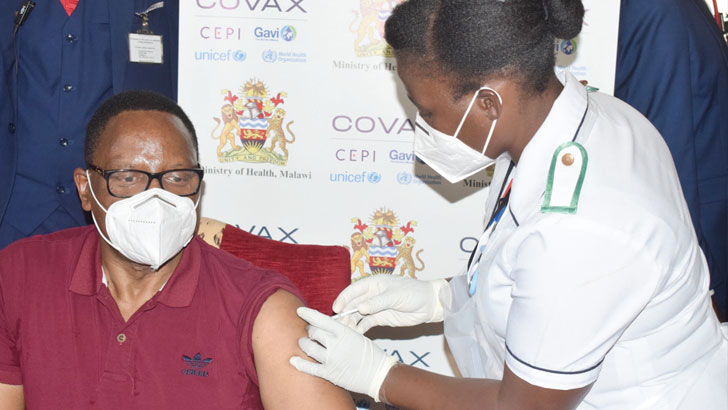Unvaccinated scared of jabs
Most unvaccinated people are scared that Covid-19 vaccines would harm their health, a Nation on Sunday spot-check in four districts has shown.
The spot-check, targeting the unvaccinated people, comes against the backdrop of low uptake of Covid-19 vaccines currently at 3.2 percent of the targeted 11 million people against the World Health Organisation’s recommendation of 30 percent by December this year.

The Nation on Sunday spot-check was done last week in Blantyre, Lilongwe, Mzuzu and Mangochi, only targeting people who did not take the jabs.
Forty people, 10 from each district, were randomly interviewed to find out why they did not go for the vaccines.
Out of the 40 people, 15 representing 37.5 percent, believed the vaccines would harm or even kill them; 10 people (25 percent) associated it with the end-time events, including the Anti-Christ and the 666.
Five people (12.5 percent) felt the vaccines were government’s ploy to control population; 9 people (22.5 percent) said the vaccines were ineffective in protecting one from the pandemic whereas one person (2.5 percent) said he could not find the vaccines when he visited a vaccination site in his area.
Ruth Bekunda, 41, of Makheta Township in Blantyre, who passed by a Covid-19 vaccination site on Monday, said she believed the jab would harm her.
She said: “Why should I invite trouble in my body when I am alright? I don’t know why the vaccine is necessary. What I know is that some people get weak when they take the vaccines, others die.”
No one was vaccinated in the three hours we were at the Makheta vaccination site on Thursday.
Health officers manning the site declined to disclose how many got the jab that day, arguing they did not have the authority to do so.
Nathaniel Nazombe, who leads the Seventh-Day Apostolic Church in Ndirande Township in Blantyre, said his church does not encourage its members to take vaccines.
He said: “These vaccines are not good for your body. They will give you problems. They may even kill you. On top of that, my church does not encourage its members to go to the hospital.”
Patuwa Pendame from Lilongwe said she was afraid the vaccine would make her impotent.
Asiyatu Mailosi from Mangochi agreed with Pendame that the vaccine is one way of controlling population.
The responses resonated with the preliminary findings of the Chancellor College’s Centre for Social Research study by Chrissie Thakwalakwa, Tawonga Mwase-Vuma and Alister Munthali.
The study found that those who showed unwillingness to get the vaccines mentioned lack of information, lack of trust in the vaccines, fear of side effects and a belief that the vaccines were not effective as reasons for their choices.
While agreeing with the study, Ministry of Health spokesperson Adrian Chikumbe said misinformation and poor support from other stakeholders, particularly faith and community leaders, are some of the reasons contributing to low uptake of the vaccines in the country.
Malawi University of Business and Applied Sciences communication lecturer Paul Mphepo concurred with Chikumbe that misinformation and disinformation have contributed to the problem.
He said: “Some religious leaders are scaring people from taking the vaccines. Fake information about the vaccines, especially on social media is also to blame. Unfortunately, some people cannot differentiate between accurate and fake information.”
The Centre for Social Research recommended that the messages should address negative rumours that people would die after receiving the vaccine. n
Additional reporting by Brenda Twea, Joseph Mwale, Ayamba Kandodo and Bright Kumwenda





